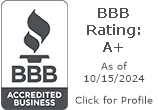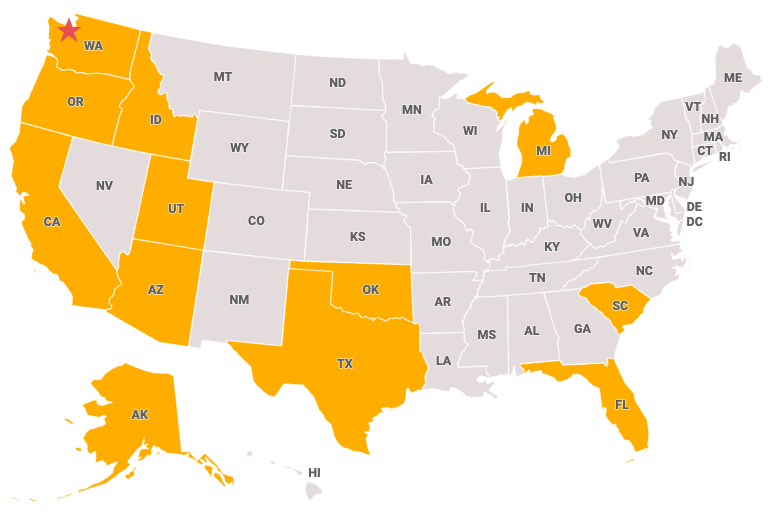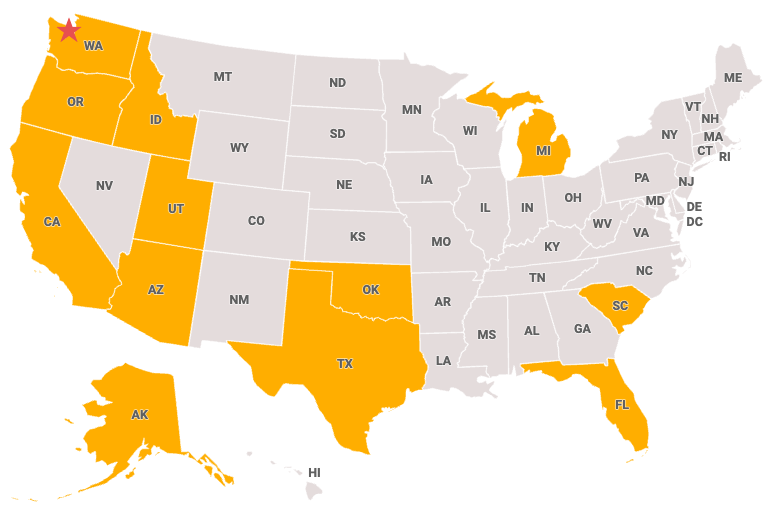"One of the finest brokerages in The Pacific Northwest dedicated to small business, contractors and artisans."
Common Types of Insurance
Below are a few basic insurance coverages and what they protect.
General Liability Insurance (CGL)
Small business general liability insurance, often referred to as commercial general liability (CGL) insurance, is a type of insurance policy designed to protect small businesses from various liability risks. It provides coverage for legal and financial obligations resulting from third-party claims for bodily injury, property damage, and personal injury arising from the business's operations, products, or services.
Here are some key features and aspects of small business general liability insurance:
- Bodily Injury: If a customer, client, or visitor is injured on your business premises or as a result of your operations, this insurance can cover their medical expenses, legal fees, and potential settlements or judgments.
- Property Damage: It covers damages to third-party property caused by your business activities. For example, if you accidentally damage a client's property while providing a service, this insurance would cover the costs of repairing or replacing the damaged property.
- Personal Injury: This aspect of the policy covers non-physical injuries, such as slander, libel, or false advertising, which could lead to a lawsuit.
- Legal Defense: General liability insurance typically covers the costs of defending your business in a lawsuit, including attorney fees and court costs.
- Product Liability: If your business manufactures or sells products, the policy can provide coverage if a product you sell causes harm to a customer.
- Advertising Injury: This can cover claims related to copyright infringement, false advertising, or other issues related to your business's marketing and advertising efforts.
- Medical Payments: It can cover medical expenses for third parties injured on your business premises, even if you're not found liable.
It's essential for small businesses to have general liability insurance because it helps protect your assets and can prevent the financial ruin of your business in the event of a lawsuit or liability claim. The specific coverage limits and terms of a policy can vary based on the insurer, so it's important to work with an insurance agent or broker to tailor the coverage to your business's unique needs.
In some cases, businesses may choose to purchase additional insurance policies or endorsements to cover more specialized risks not included in a standard general liability policy. It's crucial to assess your business's operations and potential liabilities to determine the appropriate level of coverage needed.
Contractor License Bonds (and Others)
A contractor license bond, also known as a construction or contractor surety bond, is a type of financial guarantee required by government agencies to ensure that licensed contractors adhere to regulations, complete their work as contracted, and meet their financial obligations. These bonds are commonly used in the construction and contracting industry to protect clients, employees, and the government.
Here are the key components and purposes of contractor license bonds:
- Principal: The contractor is the principal in the bond agreement. They are the party required to obtain the bond to fulfill the licensing or contractual obligations.
- Obligee: The government agency or entity that requires the bond is known as the obligee. The obligee sets the bond amount and conditions, and it can make a claim against the bond if the contractor fails to fulfill their obligations.
- Surety: A surety is a third-party company that issues the bond and guarantees to the obligee that the contractor will fulfill their obligations. The surety also assesses the contractor's creditworthiness and may require collateral.
The primary purposes of contractor license bonds are:
- Regulatory Compliance: Many states and local governments require contractors to obtain a license or permit before operating legally. To obtain a license, contractors often need to post a contractor license bond as a form of financial assurance that they will adhere to the laws, regulations, and building codes that apply to their trade.
- Consumer Protection: Contractor license bonds offer financial protection to consumers who hire contractors for construction or home improvement projects. If a contractor fails to complete the work or breaches the contract, the consumer can file a claim against the bond to seek compensation for their losses.
- Payment Bonds: In construction projects, payment bonds are often required for contractors. These bonds ensure that subcontractors, suppliers, and laborers are paid for their work and materials. Payment bonds provide a level of security to those who contribute to the project.
- Performance Bonds: Performance bonds are also common in construction projects. They guarantee that the contractor will fulfill their contractual obligations, complete the work as specified, and adhere to the agreed-upon terms. If the contractor fails to do so, the bond may be used to cover the cost of completing the project.
- Bid Bonds: In competitive bidding processes for construction projects, contractors may need to obtain bid bonds. Bid bonds demonstrate the contractor's financial stability and commitment to the project. If the contractor wins the bid but cannot fulfill the contract, the bond is forfeited.
- License and Permit Bonds: Various types of contractors, such as electricians, plumbers, and general contractors, may need license and permit bonds as part of their licensing requirements. These bonds ensure that the contractor complies with state and local regulations.
Contractor license bonds are typically required for contractors to operate legally and professionally. It's important to understand the specific bond requirements in your area, as they can vary by state, locality, and the type of contractor work. Contractors must maintain their bonds while they are actively engaged in contracting activities to remain in compliance with licensing regulations and to offer protection to their clients and partners.
Professional Liability or Errors and Omissions (E&O) Insurance
Professional Liability Insurance, often referred to as Errors and Omissions (E&O) Insurance, is a type of insurance coverage designed to protect professionals and businesses from legal claims and financial losses resulting from errors, mistakes, or negligence in the services or advice they provide to clients. This insurance is particularly important for individuals and companies in professions that involve providing expertise, advice, or professional services to others. Here are the key points to understand about Professional Liability or Errors and Omissions Insurance:
- Protection from Lawsuits: Professional Liability Insurance primarily covers the legal costs and potential damages associated with claims of professional negligence, errors, omissions, misrepresentation, or failure to deliver services as promised. These claims can come from clients who believe they suffered financial losses or damages due to the professional's actions or advice.
- Diverse Professions: Professional Liability Insurance is not limited to a specific profession; it is applicable to a wide range of professionals and businesses, including lawyers, doctors, architects, engineers, consultants, financial advisors, real estate agents, IT professionals, and many others.
- Coverage Details: The specifics of coverage can vary from policy to policy, but typically, the insurance covers legal defense costs, settlement or judgment amounts, and sometimes, the cost of rectifying the error or omission. Policies may also include provisions for coverage of intellectual property claims, privacy breaches, and other professional liabilities.
- Claims-Made Basis: Most Professional Liability policies operate on a "claims-made" basis, which means that the policy covers claims that are made and reported during the policy period, regardless of when the alleged error or omission occurred. This is different from "occurrence-based" policies that cover claims based on when the incident occurred.
- Limits and Deductibles: Business owners can select the coverage limits and deductible levels that best suit their needs and budget. Higher limits and lower deductibles generally result in higher premiums.
- Industries with Legal Requirements: In some industries, Professional Liability Insurance may be a legal requirement. For example, lawyers, doctors, and financial advisors often have regulatory or licensing bodies that mandate E&O coverage.
- Risk Management: In addition to insurance, professionals can also practice risk management to minimize their exposure to claims. This may include maintaining clear client contracts, rigorous documentation, and adherence to industry standards and best practices.
Professional Liability or Errors and Omissions Insurance is a critical safeguard for professionals and businesses. It provides financial protection in the event of legal claims, which can be costly and damaging to a professional's reputation. By carrying this insurance, professionals can have peace of mind and focus on delivering their services with confidence.
Business Personal Property Insurance
Business Personal Property Insurance, often abbreviated as BPP insurance, is a type of commercial insurance that provides coverage for the physical assets and property owned by a business. This insurance is designed to protect a wide range of tangible assets, including equipment, furniture, inventory, and other personal property used in the operation of a business. Here are some key points about Business Personal Property Insurance:
- Coverage: BPP insurance covers damage or loss of a business's physical assets due to a variety of perils, including fire, theft, vandalism, natural disasters (such as earthquakes or floods), and other unexpected events. This insurance can extend to property both inside the business premises and in some cases, property located outside, such as in a storage unit or while in transit.
- Types of Property Covered: Business Personal Property Insurance typically covers a broad spectrum of assets, including but not limited to office furniture, machinery, computers, inventory, supplies, raw materials, and any other items used in the course of business operations. The specific items covered will depend on the policy's terms and the business's needs.
- Valuation Methods: When it comes to determining the value of the insured property, there are typically two methods used:
- Actual Cash Value (ACV): This method pays out the current market value of the property at the time of loss, accounting for depreciation.
- Replacement Cost Value (RCV): This method covers the cost to replace the damaged or lost property with new items of similar kind and quality, without deducting for depreciation.
- Limits and Deductibles: Business owners can choose coverage limits that reflect the total value of their business property, and they may also select a deductible (the amount the business owner is responsible for paying out of pocket before the insurance coverage kicks in).
- Endorsements: Depending on the business's needs, additional endorsements or riders can be added to the policy to cover specific items or situations not covered by the basic policy. For example, a business might need separate coverage for valuable artwork, specialized equipment, or off-site property.
Business Personal Property Insurance is essential because it helps businesses recover from the financial loss associated with the damage or loss of their assets. This can be particularly critical for small businesses with limited financial resources. It can help businesses replace damaged items, repair or rebuild their premises, and continue operations, minimizing disruptions.
It's crucial for business owners to carefully review their insurance policies, assess the value of their business assets accurately, and choose coverage that adequately safeguards their property. Additionally, it's often recommended to periodically update the policy to reflect changes in the business's property inventory and value.
Business Income Insurance
Small business income insurance, also known as Business Income Insurance or Business Interruption Insurance, is a type of insurance coverage designed to protect a small business from financial losses resulting from unexpected events that disrupt their normal operations. This insurance is particularly important for businesses that rely on a physical location, such as a retail store or office, to generate income.
Here's how it works:
- Coverage for Income Loss: Small business income insurance typically covers the loss of income that occurs when a business is unable to operate due to covered events. These events can include natural disasters (e.g., earthquakes, floods), fires, theft, or other situations that cause damage to the business premises.
- Extra Expenses: In addition to covering lost income, this insurance may also reimburse the business for extra expenses incurred to resume normal operations as quickly as possible. For example, it might cover the costs of relocating to a temporary location while the original business premises are being repaired.
- Coverage Period: The coverage period varies, but it usually starts when the covered event occurs and continues until the business is back to its pre-loss income level or until a specified time limit is reached.
- Policy Limits: Small business income insurance has policy limits, which determine the maximum amount the insurer will pay out. Business owners must select coverage limits that adequately meet their needs.
- Waiting Period: There's usually a waiting period (a deductible) before the policy comes into effect. The business owner is responsible for covering their expenses during this period.
- Customization: Business owners can often customize their business income insurance policies to fit the specific needs of their company. This customization may affect the cost of the insurance.
It's important to note that small business income insurance does not cover all types of events. Each policy will have specific terms and conditions that outline what is covered and what is not. Business owners should carefully review the policy details and consult with insurance professionals to ensure they have the coverage they need to protect their business from income loss due to unforeseen events. This insurance is particularly important for businesses that cannot afford prolonged interruptions and need a financial safety net to stay afloat during difficult times.
How We Work
The Fine Points
Bonds We Offer
Janitorial Bonds
Notary Bonds






